So I was walking out of my office into the library when I looked over at a row of computers. There was a girl typing a paper and a boy sitting next to her working. What caught my eye wasn't that the boy was working on the computer, but he was sitting back in the chair with one leg crossed over the other and a tablet in his lap. I asked him what he was up to, and he said he was doing some research. I asked him why he wasn't using the computer. Thinking he was in trouble, he started to put his tablet away and was sliding his chair in to log in to the computer, but I assured him it was okay that he was using the tablet, I was just wondering why he made the choice to use a tablet with a perfectly good computer in front of him. He didn't know the answer, but I had a pretty good idea. He was using the tool he felt most comfortable with, a tablet.
It is time for schools to move on and use the tools with which students want to and need to learn. Students have always wanted to use the most recent gadgets and technology, so why limit them? This is a great opportunity for education to show students that using smartphones, tablets and e-readers is okay to learn and communicate with, but we need to teach ethical and proper use of these in the educational and world setting.
I feel that I may be preaching to the choir because many schools seem to be heading the way of one-to-one and BYOD, but it also seems that caution is a hindrance and not a safe open door. We need to protect students and school networks but we don't need an iron curtain keeping information out and students frustrated. A moderate security policy with clear expectations as well as instruction of staff and students on proper use of technology would go a long way in creating a 21st century environment.
My vision is that technology isn't locked in a computer lab or classroom or any one room or area in a school, but rather it is a part of the school environment. Technology could be used anywhere, so learning isn't limited to a specific place, but rather it just happens. Students find the answer to their query in the hall on the way to class, they complete a presentation at the lunch table, they record an interview in the classroom or office, and on and on.
There are problems that will occur, there always are and there always were even before computer/wi-fi technology. But with an honest and effective approach, the problems should be minimal. Is it worth the risk? I believe so.
Thursday, January 24, 2013
Friday, January 11, 2013
Interestingness...I wasn't really interested until I discovered it
Thanks to Dirk Puehl on Google+ for posting these awesome vintage advertisements for libraries. They come from a blog that is new to me, but I will definitely be checking in with frequently, called Brain Pickings. It seems that Maria Popova is the creator and main contributor to the blog which claims to be "a human-powered discovery engine for interestingness." What is that? Good question, so she defines it as placing "a subjective lens on what matters in the world and why, bringing you things you didn't know you were interested in -- until you are." Well, the post that includes these posters interested me, so I am buying in to this concept of "interestingness."
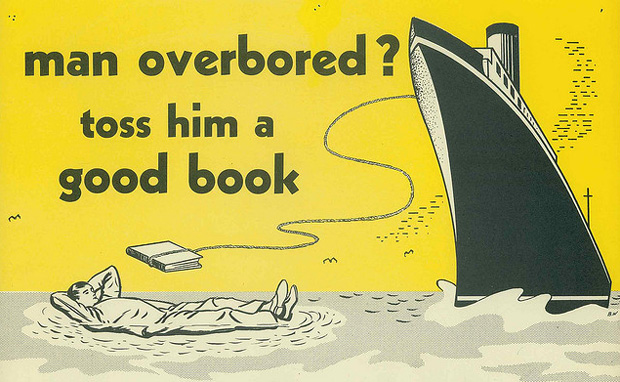
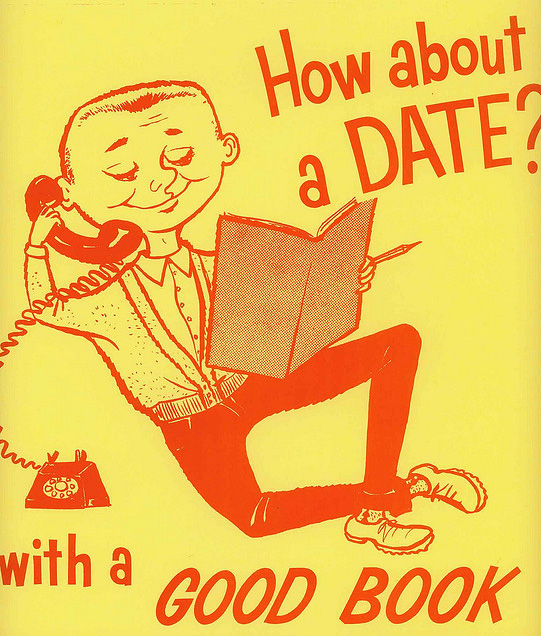
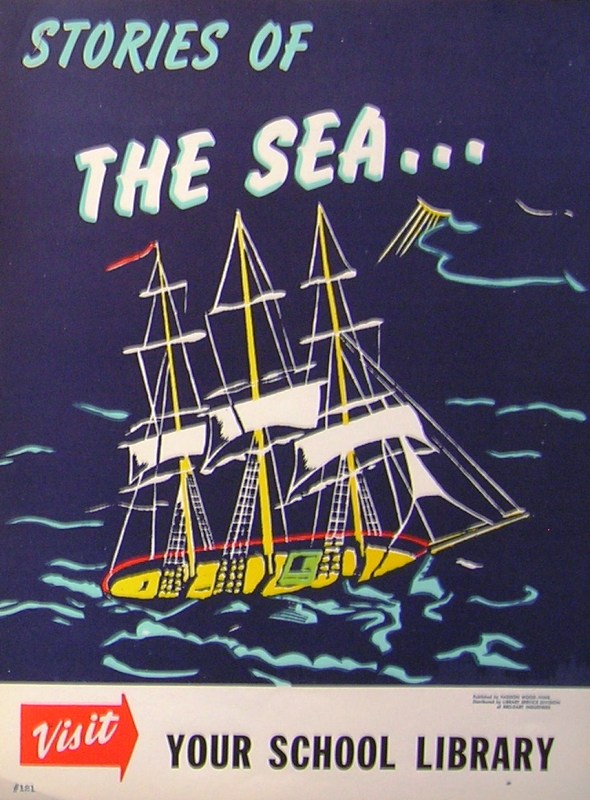
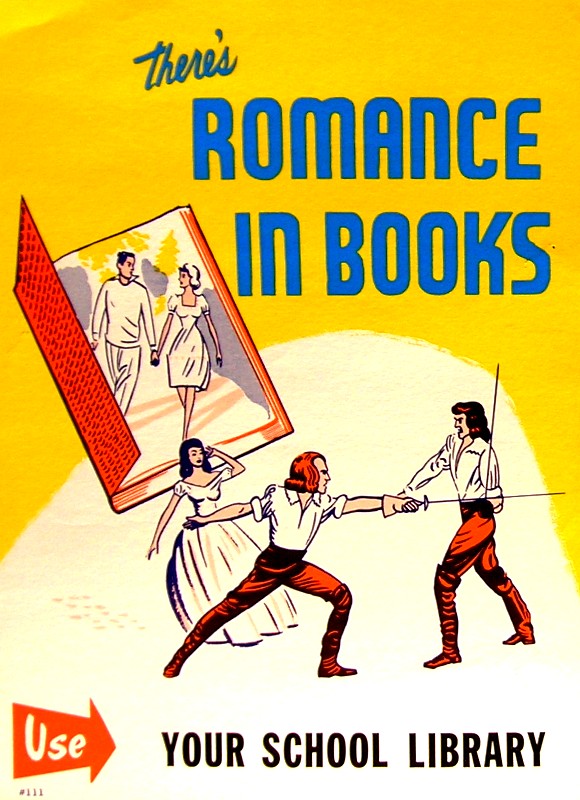
I think we need more "interestingness" in our lives. I like this last poster because I believe that we have lost a sincere curiosity in things that matter. What does that mean? I'm not sure but I know we don't find it by immersing ourselves in hours of television watching, playing hours of video games, or hours of time on social networks. We have to diversify our lives with some of the simple things (mentioned above) but also the complex and rich things that might take a bit of effort (world affairs, books, face-to-face time). I don't know, but it sure was cool to find these gems today!
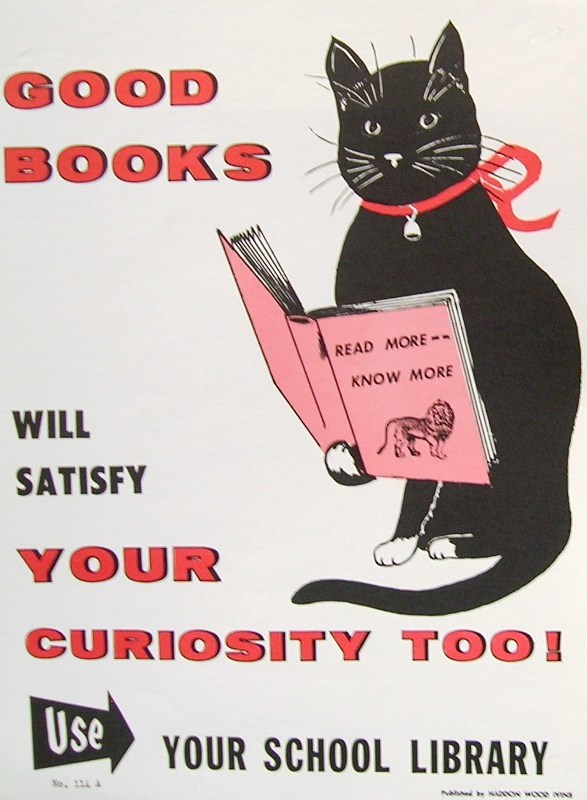




I think we need more "interestingness" in our lives. I like this last poster because I believe that we have lost a sincere curiosity in things that matter. What does that mean? I'm not sure but I know we don't find it by immersing ourselves in hours of television watching, playing hours of video games, or hours of time on social networks. We have to diversify our lives with some of the simple things (mentioned above) but also the complex and rich things that might take a bit of effort (world affairs, books, face-to-face time). I don't know, but it sure was cool to find these gems today!

Thursday, January 10, 2013
The Top 10 (or so)
The results are in and the top book of the first semester at IVC high school is Jay Asher's Thirteen Reasons Why. It is no surprise that this book, an Abraham Lincoln Book Award Nominee, that addresses relationships we have with others is the most popular book. I would not be surprised if it shows up in this spot this semester as well.
A very close second and third are Suzanne Collins Catching Fire and Mockingjay, respectively. If you are wondering, The Hunger Games shows up in a large group tied for ninth on the list. Rounding out the top five are John Flanagan's The Ruins of Gorlan and Mary Higgins Clark's mystery The Lottery Winner Alvirah and Willy Stories.
Some other notable titles that I was pleased to see out being read are: The Maze Runner, The Graveyard Book (one of my favorite books), Graceling, and The Hobbit. Also, another Abraham Lincoln Book Award Nominee made a showing in the top 10 as Alexander Gordon Smith's Lockdown came in sixth.
Tuesday, January 8, 2013
Print to digital or just giving up?
After returning to school after the break, I checked my mailbox and of course it was full of the magazines that came over break. As I began to process them to put them out on the library floor, a couple covers caught my eye. First, the headline on the Newsweek issue is "#LASTPRINTISSUE". I thought it might be a publicity stunt to get some to open the issue, but, nope, it really is the last print issue.
As I read Editor in Chief, Tina Brown's "Perisope" issue introduction titled, "A New Chapter: Sometimes, change isn't just good, it's necessary," it seems that she makes an apologetic "sorry, but we tried" statement. She talks about how in 2010 Sidney Harmon purchased Newsweek from the Washington Post company to attempt to save the magazine. Then she goes on a two page summary of the "heroic" efforts of attempting to revive the publication. Brown concludes with a statement that "this is not a conventional magazine" and they are embracing a digital medium "that our competitors will one day need to embrace with the same fervor." I'm not buying this "we are innovators" speech. A note on the side of her editorial notes that digital Newsweek will be found in iTunes, Zinio, Google, Kindle or Nook. She says that her competitors, who I am assuming are Time and other news magazines, will need to follow up with the same fervor. I hate to notify Tina Brown, but the other major news magazines have already done this, but have managed to keep a print magazine. What I think Brown is saying is, we gave it a go as print, now we will try digital to save on printing and postage, but we may just fade away, so farewell. I would have preferred an honest statement of, we gave it our best shot to bring the integrity back to the Newsweek brand and it just didn't work, so now we are rebranding as a digital publication. Good luck Newsweek.
In my introduction, I mentioned that two covers caught my eye. The second caught my eye, probably, because of the Newsweek cover. While the Newsweek brand is basically hanging it up after 80 years, National Geographic is celebrating it's 125th anniversary with a Special Issue. I realize they are two completely different animals, but what an interesting juxtaposition.
As I read Editor in Chief, Tina Brown's "Perisope" issue introduction titled, "A New Chapter: Sometimes, change isn't just good, it's necessary," it seems that she makes an apologetic "sorry, but we tried" statement. She talks about how in 2010 Sidney Harmon purchased Newsweek from the Washington Post company to attempt to save the magazine. Then she goes on a two page summary of the "heroic" efforts of attempting to revive the publication. Brown concludes with a statement that "this is not a conventional magazine" and they are embracing a digital medium "that our competitors will one day need to embrace with the same fervor." I'm not buying this "we are innovators" speech. A note on the side of her editorial notes that digital Newsweek will be found in iTunes, Zinio, Google, Kindle or Nook. She says that her competitors, who I am assuming are Time and other news magazines, will need to follow up with the same fervor. I hate to notify Tina Brown, but the other major news magazines have already done this, but have managed to keep a print magazine. What I think Brown is saying is, we gave it a go as print, now we will try digital to save on printing and postage, but we may just fade away, so farewell. I would have preferred an honest statement of, we gave it our best shot to bring the integrity back to the Newsweek brand and it just didn't work, so now we are rebranding as a digital publication. Good luck Newsweek.
In my introduction, I mentioned that two covers caught my eye. The second caught my eye, probably, because of the Newsweek cover. While the Newsweek brand is basically hanging it up after 80 years, National Geographic is celebrating it's 125th anniversary with a Special Issue. I realize they are two completely different animals, but what an interesting juxtaposition.
Subscribe to:
Posts (Atom)